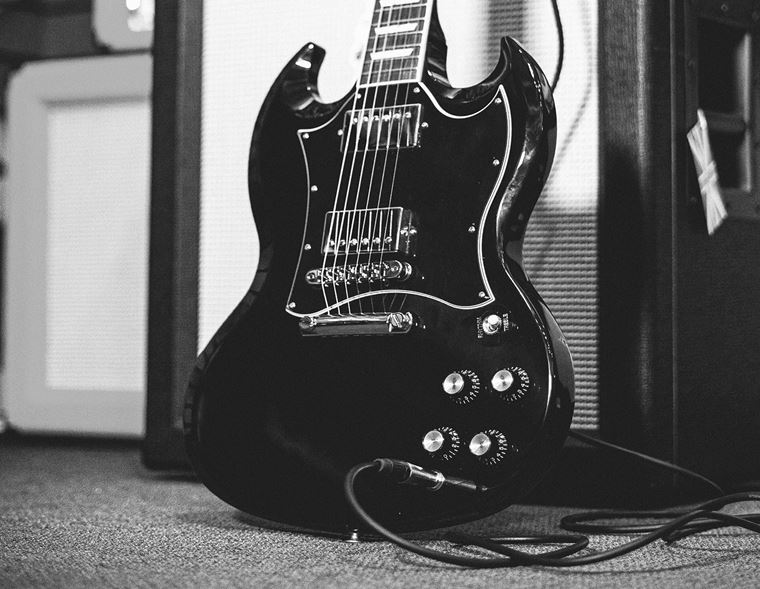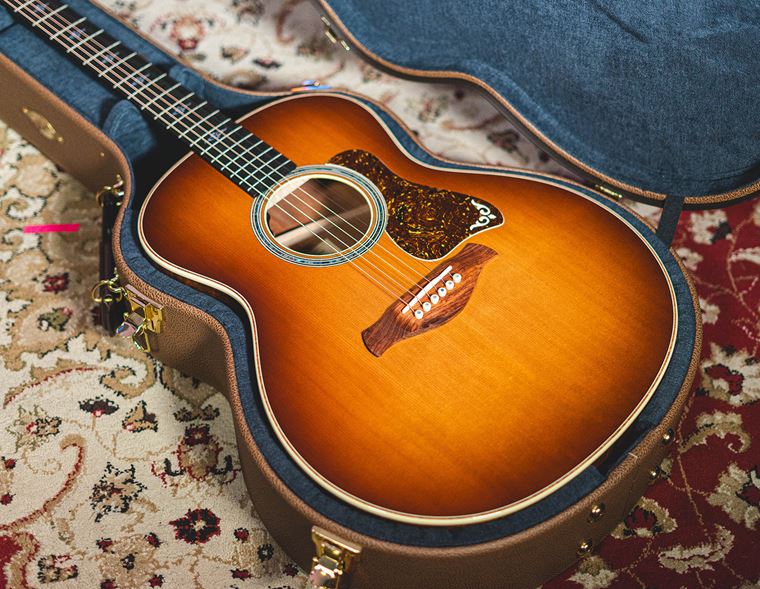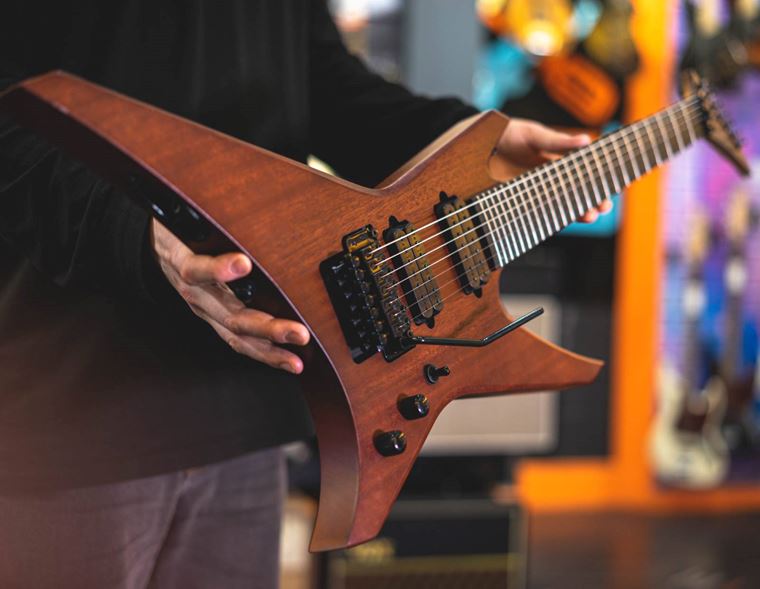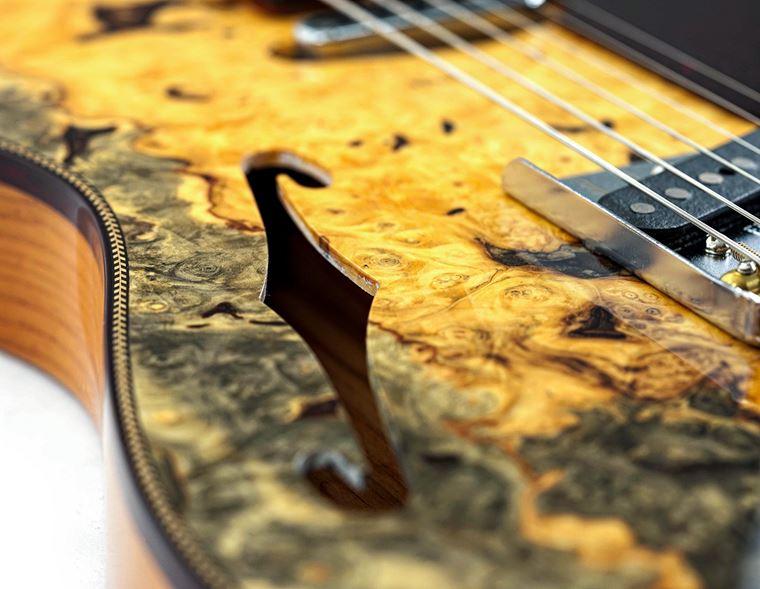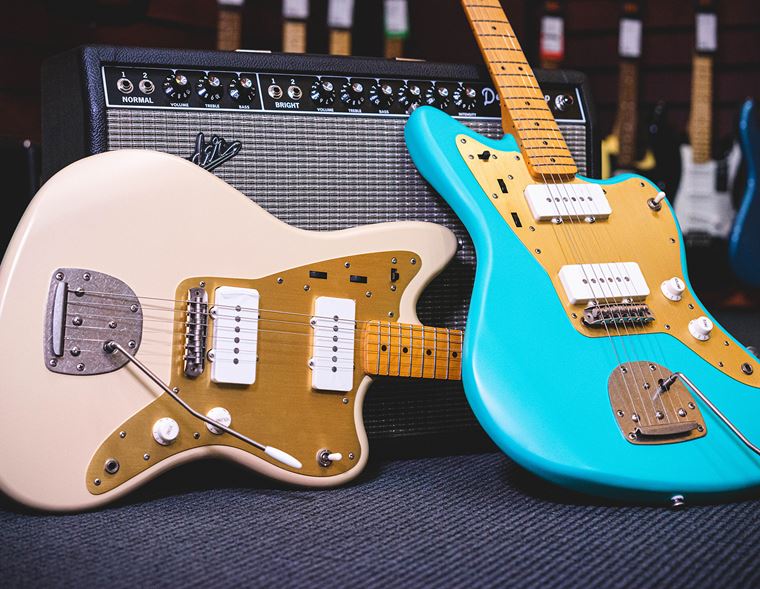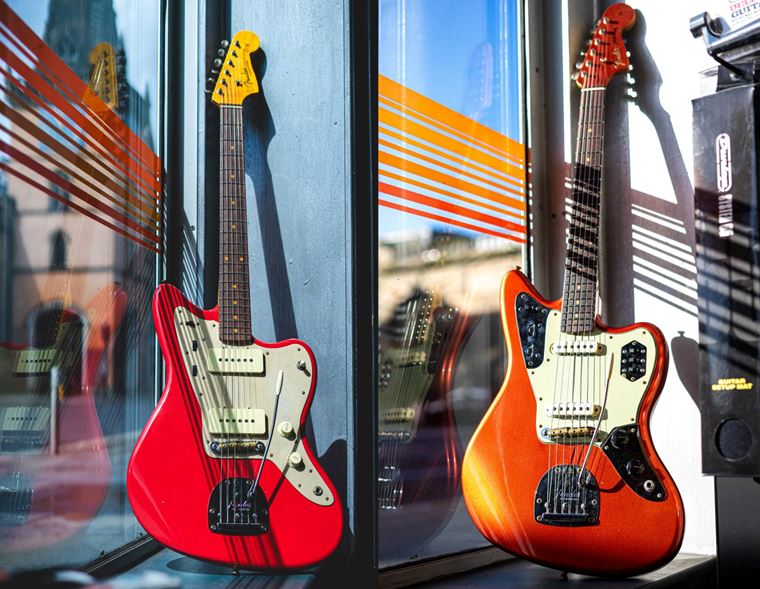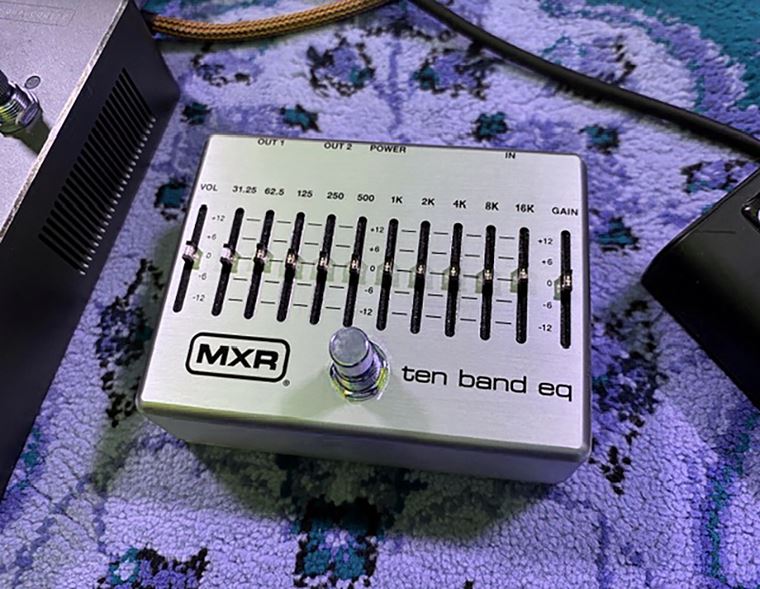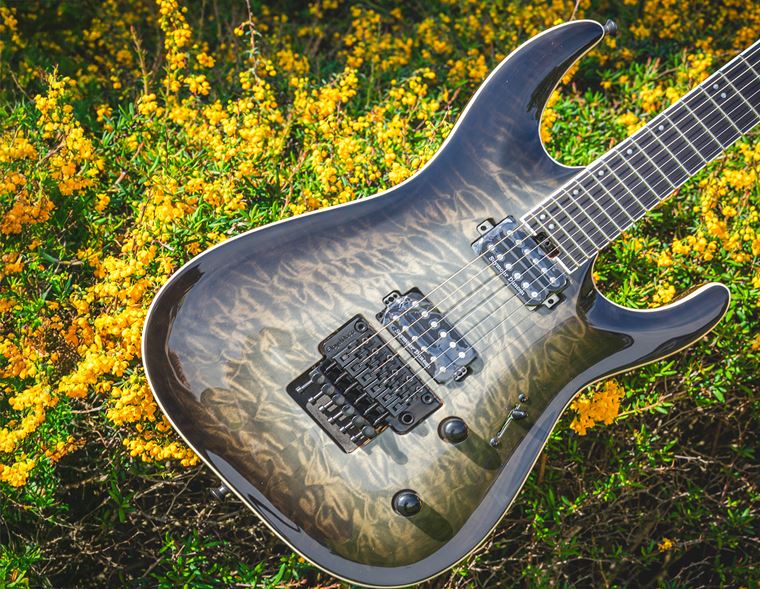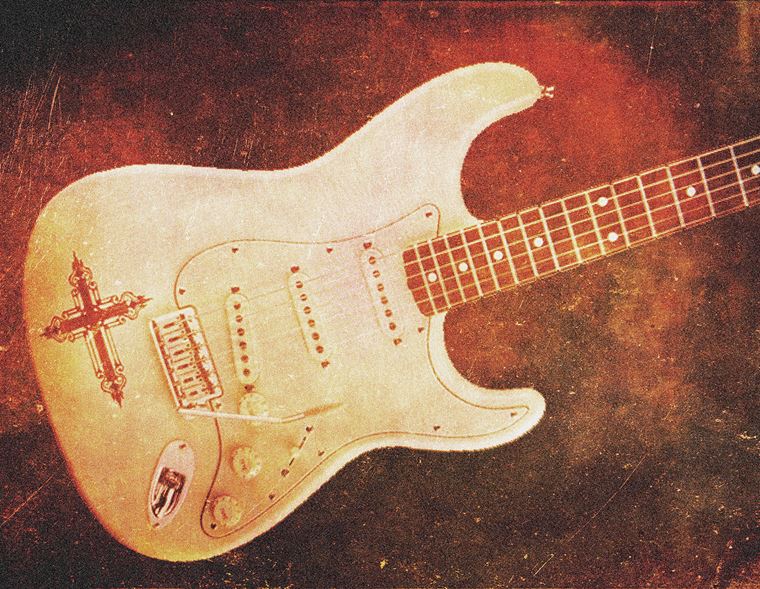Acoustic vs Electric Guitar: Which Should I Learn First?! Our Expert Guide (Updated October 2023)
Welsome to today's blog! You are circling around the notion of taking up the guitar. Good for you! But something is bothering you. Every year, around this time, that age-old question rears its head once more to trouble and taunt the good people of this land. The question, of course, is what to learn guitar on: acoustic or electric?
Seeking answers can be the stuff of eternal torment! Such decisions! Fear not, gentle beginner-guitarist: I have wisdom to impart! My years of service both on the shop floor and behind the scenes have given me a lot of experience in this area, and I'm more than happy to share these insights with you. What I don’t have, I must confirm, are any set-in-stone answers. What I can do, though, go through the various pros and cons of the acoustic and the electric guitar, and then talk through how you might make your own decidsion about all of this. I can guide you, pointing out the benefits and drawbacks to both paths, but the decision ultimately lies with you.
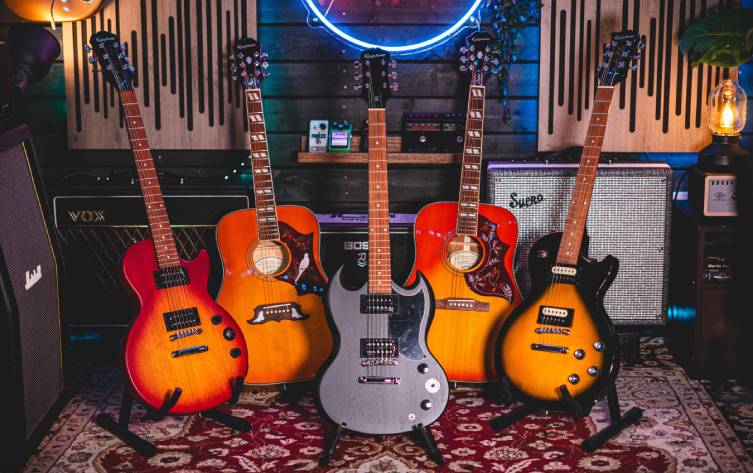
Contents
- Acoustic guitar
- Electric Guitar
- What’s the Difference Between an Acoustic and an Electric Guitar?
- What are the Similarities between Acoustic and Electric Guitars?
- Genres for Acoustic & Electric Guitars
- Learning to Play an Acoustic : Pros and Cons
- Learning to Play an Electric Guitar: Pros and Cons
- Acoustic vs Electric: Which is Best for You?
- Final Thoughts and Questions Answered
Acoustic Guitar
For many who are new to guitar playing, it would seem that the acoustic guitar is the de facto first choice. We’re not saying that this should necessarily be the case but let’s look into it. Acoustic guitars are complete in and of themselves, requiring no additional equipment in order to function. No amp, no cables, no electricity. This certainly makes acoustic guitar playing a simple prospect: you pick it up and you play it! Electro acoustic guitars that plug into amps do of course exist, but they are somewhat beyond the scope of this article.
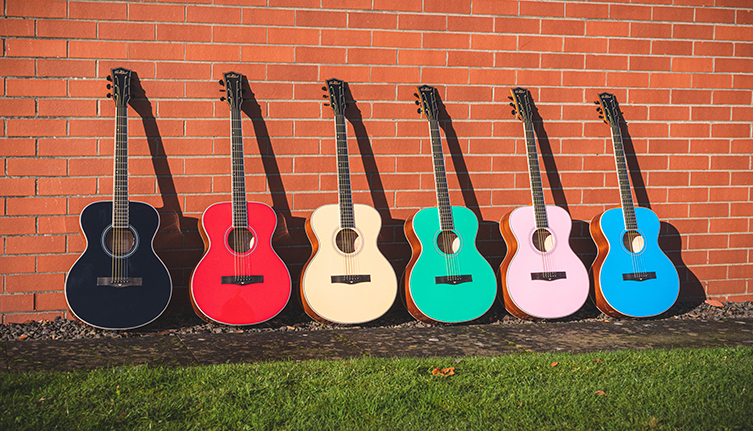
Acoustic guitars are almost always physically bigger than electric guitars. They need the large hollow bodies in order to make the sound happen via resonance and projection of soundwaves. In practical terms, this means that the right arm will have to reach over the body slightly more than with an electric.
Acoustic guitars generally have more tension in the strings than electric guitars. This means that the strings are altogether tighter and less malleable, making them slightly harder work on the fingers. This is especially true with beginners since they have yet to develop the necessary callouses on their fingertips. Hey, it needs to happen eventually!
As to whether you go for steel or nylon strings, we have actually dedicated another entire blog to that subject! For the purposes of this article we are assuming steel strings but to summarise: nylon strings are easier on the fingers but often have bigger necks and also give a specific sound that may or may not prove to be what you’re after.

So, acoustic guitars are a simpler proposition and are slightly tougher on the hands. Sonically, if you like predominantly acoustic music, this is a no brainer! Lots of songs translate well onto acoustic guitar anyway and if you want to sing songs and write your own, the acoustic guitar is likely to be a good fit for you.
Electric Guitar
But what if you love Rock guitar riffs? Wild sounds? Metal? Posing? All of the above are more achievable with an electric guitar. To be clear, the actual principles of playing are exactly the same so you won’t be ‘losing out’ on anything whichever way you go. Whatever you learn on an acoustic can be brought across to the electric and vice versa, with the exception of obvious things like whammy bar dive bombs and feedback (don’t worry about these terms just now!).

So why pick an electric guitar over an acoustic? Well, firstly, they are most definitely easier to play on. They have slim bodies, thinner necks and the strings are much less rigid. All of that makes electric guitars far more ergonomic.
They are also, let’s face it, more exciting. Yes they are! There is no thrill quite like playing a note or chord on an electric guitar and hearing it coming out of an amplifier. Even after decades of playing, this does not get old! Electric guitars are available in a wide range of styles and colours so there is more excitement and personalisation in choosing one. This refers to beginner models, too: they look, sound and feel close enough to the famous models to make the experience of learning fun, encouraging and authentic.
What else? Well, the chances are, most of your experience of hearing guitars has been electric guitars. Whether you’ve grown up listening to Green Day, Nirvana, Led Zeppelin or Queen, it’s likely that your mind throws up images and sounds of Rock Stars onstage blasting away on an electric guitar. Realising this is important because an acoustic guitar will simply not fit in with this interior expectation and some enthusiasm may be lost. At this crucial early stage, this is not what we want!

So, what are the downsides of picking an electric guitar? Well, the guitar by itself won’t do a whole lot. Contrary to what some people expect, you can hear an unplugged electric guitar, it just doesn’t really sound like much. So, you’ll need a guitar amp and a guitar cable at least. Probably a strap too in order to play standing, let’s keep it real. These all add to the cost, though you can buy starter packages from us at some pretty great prices! For perspective, starter packages were roughly the same price back when I began playing guitar and when I began, Kurt Cobain was still alive! Okay? These packs are great value!
Anyway, you’ll need to plug into an amp and dial in sounds which is extra stuff to learn and account for. It also means you’re pretty much rooted to whichever spot you plug your amp into, making mobility a hassle unless you unplug everything and trail it around with you.
Aside from that, there isn’t really much in the way of downsides to choosing an electric. We aren’t going to warn anybody about loud amps annoying the family/neighbours either because A: turning it up loud is awesome, and B: at least amps CAN be turned down: acoustic guitars are gonna be pretty loud no matter what, until you learn how to control your playing dynamics. At least a volume control is an option!
What’s the Difference Between an Acoustic and an Electric Guitar?
There are a few fairly significant differences between an acoustic and an electric guitar. Physically, the biggest difference lies in their overall design. Acoustic guitars are hollow, and are built with large bodies. This is where the sound is created after playing a string, and the top of the guitar (the front of the ‘face’ if you prefer) has a soundhole to let that sound come out.
Electric guitars, on the other hand, are nearly always solid (there are exceptions), and their sound has less to do with the instrument’s physical properties as the electronics built inside the instrument. Electric guitars don’t make a particularly loud or resonant sound on their own, since they’ve been designed to work with an amplifier.
Acoustic guitars use different strings to electrics, and often have slightly wider, thicker necks. This sometimes means that electric guitars are easier to play, since their necks are typically slimmer and the strings are less ‘tight’ feeling.
Acoustic guitars are self-sufficient: they create their own sound and require no additional equipment in order to fully function. Electric guitars, on the other hand, require an amplifier and cable, not to mention electricity!
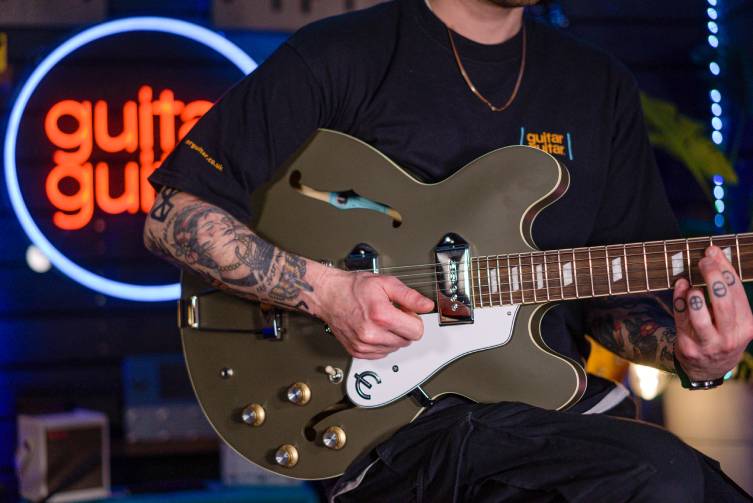
What are the Similarities between Acoustic and Electric Guitars?
In terms of similarities, the major one is the fact that you play them in pretty much the same manner. Sure, they feel a little different due to neck dimensions and string tension (acoustics are somewhat ‘stiffer’ in feel), but in terms of forming a chord and strumming it, the two are the same.
The musical knowledge you apply to the acoustic guitar will remain the same on the electric guitar. The same frets will correspond to the same notes, so you can take what you've learned on one type of instrument and apply it directly to the other.
You also tune them the same way, using the same methods. The songs you want to play will work equally on an acoustic as on an electric, though of course some styles are more suited to one type of guitar over the other!
Fundamentally, we are talking about to different variations on the same instrument. You can strum on both, play leads on both, create rhythms on both, write songs on both and develop techniques such as slide playing and alterante tunings on both.
Genres for Acoustic & Electric Guitars
As mentioned, since both types of guitar utilise the same tunings and general operation, you can pretty much play whatever styles and genres you want on either. That said, some genres are definitely more suited to acoustic guitars, and others work better on electric guitars. Here’s my opinion on how these genres sit, bearing in mind that there will often be ‘crossover’ genres like indie-rock music, for example.
Acoustic Genres
- Folk (Joni Mitchell, Bob Dylan, John Prine, Joan Baez)
- Country/Bluegrass (Johnny Cash, Willie Nelson, Lucinda Williams)
- Americana (Jason Isbell, Emmylou Harris, Morgan Wade)
- Singer-Songwriter (Nick Drake, Jack Johnson, Taylor Swift)
- Acoustic Blues (Robert Johnson, John Mayer, Keb’ Mo’, Seasick Steve)
- Indie (Oasis, Bon Iver, Ed Sheeran)
Electric Genres
- Blues (Joe Bonamassa, Muddy Waters, Eric Clapton)
- Rock (Queen, Led Zeppelin, U2, AC/DC)
- Metal (Metallica, Black Sabbath, Slipknot, Iron Maiden, Pantera)
- Punk (Ramones, The Clash, Green Day, Rancid)
- Pop (Blink 182, Maroon 5, Fleetwood Mac)
- Jazz (Wes Montgomery, Al Di Meola, George Benson, Pat Metheny)

Learning to Play an Acoustic: Pros and Cons
Pros
- No need for additional equipment always ready to play
- Play anywhere indoors or outdoors
- No controls or electrical elements to have to learn and maintain: simpler to use
- Lots of ‘acoustic songs’ are based on simple chords and strumming so progress will be fast
Cons
- Relatively limited sounds available
- Initially tougher on the fingers
- Larger neck and body makes the acoustic more cumbersome to handle
- Can be loud when strummed, can annoy neighbours
- Could be considered dull or boring compared to an electric guitar (very subjective point here!)
- Heavier strings also make certain types of ‘lead guitar’ playing difficult on an acoustic
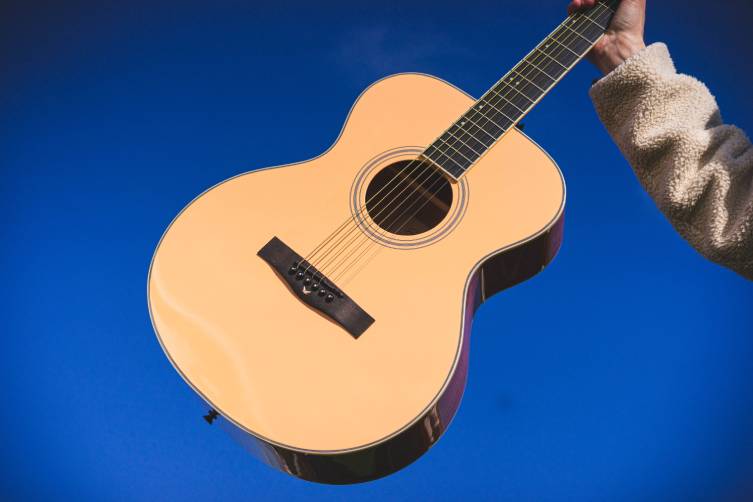
Learning to Play an Electric Guitar: Pros and Cons
Pros
- Lots of sounds available, even without additional effects
- Easier on the fingers and easier to pay (thinner neck)
- Exciting to own and play
- Lots of choice with shapes and colours
- Can usually be played with headphones connected to the amplifier, so potentially much quieter
Cons
- Requires additional equipment such as an amplifier and a cable
- Lots of controls and additional devices (such as tremolos/whammy bars) mean there’s more to learn and get to grips with
- Lead guitar parts are complicated and will take longer to learn
- Doesn’t make much of a sound on its own
As you can see, there are pluses and minuses to each path. Which is best for you? Let me look at that next…

Acoustic vs Electric: Which is Best for You?
So, you’ve looked through the Pros and Cons above, and you’re thinking: ‘I quite like options from both categories!’, right? I hear you! In that case, let me invoke my years of sales floor insight and experience and see if we can’t narrow this down a little…
What I’d first say to you is this: what are you more likely to pick up and play? If you think acoustic guitars look a little bit boring, then that’s enough to stop your learning process. Honestly, it is: you’ll just turn on the TV or Playstation instead, and the guitar will find itself living in a wardrobe. If you dream of being on stage like a rock god (whether you realistically want to chase that dream or not) then you really want an electric guitar.

If, however, you specifically want to strum rich sounding, percussive chords, maybe take your guitar to the beach or to a folk session at a pub, then a Les Paul and Marshall amp is not what you need! You obviously want an acoustic guitar.
The other thing I’d definitely mention to you is this: the question is not ‘which one do I go for?’, but ‘which one do I go for first?’. Every single guitar player I know - which you’ll concur is probably quite a lot - have both an electric and an acoustic. Well, most of them have loads of guitars, but the point is, you’ll more than likely end up exploring both of these worlds at some point, since they are different forks in the same path, really. So, what you need to figure out is which one - electric or acoustic - will be the one to keep your interest longer and help develop the fascination required to persevere and succeed. If you can retain the passion then learning the guitar is just a byproduct of enjoying yourself.
Final Thoughts and Questions Answered
There are a few other questions I’ve been asked a lot over the years so here is a quick Q&A Section to round up the rest of these burning issues…
Q: Can I start playing an electric guitar first, or do I have to begin on an acoustic?
A: You can absolutely start on an electric guitar if you want to. Nobody will care if you leave the acoustic for later on, just as nobody will care if you stick to acoustic and never play an electric guitar ever! Personally, I started on an electric guitar, and didn’t own an acoustic until about three years down the line.
Q: Are acoustic strings harder to play?
A: Yes, they do tend to be harder on the fingers. Acoustic guitar strings are typically heavier in thickness (gauge) and have greater tightness (tension), both of which make them a little more resistant to your fingers. Perseverance pays off though!
Q: Can I play an electric guitar without an amplifier?
A: Yes you can! In fact, I often do this when I’m just having a little noodle around, but they don’t sound particularly impressive on their own. They sound quiet and flat, and not the most inspiring, but yes, you certainly can do that.
Q: Can I use electric guitar strings on an acoustic guitar? And vice versa?
A: The better question might be: why would you want to? Nowadays, acoustic guitar string gauges can be as light as electric guitar gauges, so there isn’t much of a benefit to using the wrong strings, either way. My advice is stick to what the instrument is used to. The only cardinal sin is to restring a nylon string classical guitar with metal strings of any description. You will break your guitar. It’s that simple. Don’t do it!
Q: Can I use steel acoustic strings on a classical guitar?
A: I know I just answered this one, but it bears repeating for those Googlers who’ve come straight to this answer: DO NOT RESTRING A CLASSICAL GUITAR WITH STEEL STRINGS. Yes, it does require the capitals. Don’t do it, because you will snap the guitar’s neck. Steel string guitars of all descriptions have a metal rod inside the guitar’s neck (called a truss rod) to counteract the pull of the metal strings. Classical guitars have no such things and will snap like rotten twigs under the pressure of metal guitar strings. You have been clearly warned!
Q: Do electric guitars need batteries?
A: Good question! Some of them actually do! Not many, to be fair, but some use what we call ‘active’ pickups or active circuits, and these need to get power from a 9v battery. Plugging your guitar cable into this sort of guitar will immediately begin draining the batteries, so do be careful of that! The majority don't need batteries though, and that almost certainly includes all beginner models you may be looking at, so don't worry about all that just now.
Q: Is the acoustic guitar harder to play?
A: There is a perception that acoustic guitars are harder to play, and I would tend to agree with that from a beginner’s perspective. They have big bodies, larger necks and harder, stiffer strings, so yes, they are less forgiving to learn on than most electric guitars, especially when you aren’t used to either.
Q: What is better between an acoustic and an electric guitar?
A: Well, this whole blog has been exploring that question, but in a nutshell, there is no ‘better’, only what is better for you. If you like the sound of an acoustic guitar, then go for an acoustic, since electric guitars will never sound like those. If you want to play rock songs, and perhaps give your hands and fingers an easier time of it, then electric guitars will be a better choice for you.
That, I believe, is most of the oft-asked questions I’ve had over the years. I hope this blog has given you some clarity of thought and insight into what might work for you. Our staff are always around to chat to you about this, too. Remember, we were all beginners once, and we know what it’s like to go into intimidating music shops and risk being sneered at by sarcastic staff. That is not us: we want you to have an outstanding time at guitarguitar and leave with something you love. Best of luck!


